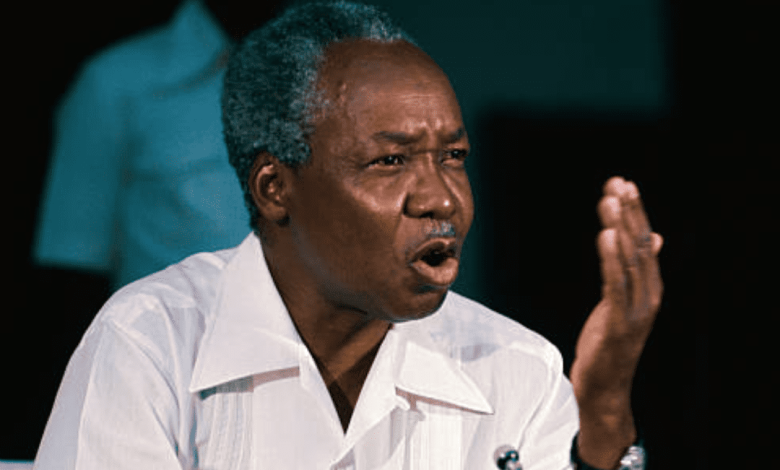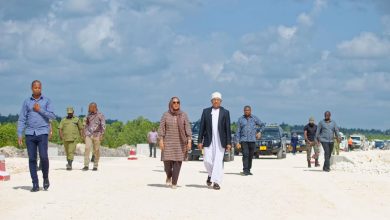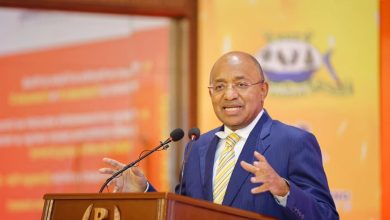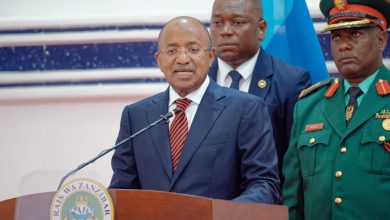Nyerere’s enduring legacy: Unity, integrity

ZANZIBAR: TWENTY-SIX years after his passing, the legacy of Mwalimu Julius Kambarage Nyerere continues to resonate deeply across Tanzania’s political and social landscape.
From the islands of Zanzibar to the vast stretches of the Mainland, his vision of national unity, equality and integrity remains firmly embedded in the country’s identity.
But in Zanzibar, Nyerere’s memory carries a particularly profound significance — as the co-architect, alongside the late Abeid Amani Karume, of the Union that gave birth to the United Republic of Tanzania in 1964.
For many Zanzibaris, the name Nyerere still commands respect, admiration and deep reflection on the value of unity, politically, economically and socially.
Baraka Shamte, a veteran CCM cadre from Zanzibar, says Nyerere’s vision for unity was unmatched.
“Mwalimu Nyerere understood that the strength of a small nation like ours lay in togetherness. He saw beyond the politics of his time and imagined a future where Zanzibar and Tanganyika could complement each other —united in spirit and destiny.” That foresight, Shamte argues, continues to hold the nation together today.
The Union itself has become one of the most enduring political unions in modern Africa, surviving leadership transitions, constitutional debates and shifting geopolitical landscapes, a testament to the foundation laid by Nyerere and Karume.
Professor Mohamed Hafidh, Director of the Presidential Delivery Bureau (PDB) at the Zanzibar State House, notes that Nyerere’s philosophy of unity was never confined to symbolism.
“Nyerere believed that unity was a mechanism for social and economic transformation,” he says.
“Today’s development strategies, under President Hussein Ali Mwinyi and President Samia Suluhu Hassan, are still inspired by that collective spirit.”
Prof Hafidh points to the tangible benefits Zanzibar has gained through the Union — shared infrastructure, education access and healthcare programmes, while retaining its own identity and administrative autonomy.
“That balance between unity and individuality is what makes the Tanzanian model unique.”
For Mohamed Aboud, a retired minister who served in both Zanzibar and Union governments, Nyerere was a leader of rare principle.
“He left power voluntarily, without wealth or scandal — almost unheard of today. But more importantly, he built institutions that could survive beyond him. The Union is one of them. It has kept this country stable and peaceful for six decades.”
He urges today’s leaders to emulate Nyerere’s humility and commitment to national interest.
Ambassador Amina Salum Ali, former Tanzanian envoy to the African Union, describes Nyerere as a Pan-African icon.
ALSO READ: Kimiti calls on Tanzanians to uphold Nyerere’s legacy of peace, unity
“He wasn’t only the father of the Tanzanian nation — he was a father figure for Africa. He fought for liberation across the continent and championed African unity.”
She says his partnership with Karume is a lasting example of what African cooperation can achieve when grounded in mutual trust.
“The values Nyerere promoted — equality, education, social justice — remain as relevant as ever. He believed that real freedom comes through knowledge and self-reliance.”
Among the younger generation, Nyerere’s name still resonates. Khadija Omar Mussa, a university student in Zanzibar, says she was raised hearing stories about his leadership.
“He’s like the grandfather of our nation. What I admire is his belief in fairness and equality — values that still matter. The Union he built gives us opportunities across both sides of the country.”
She adds that the best way to honour his memory is to live by his principles of unity, discipline and public service. Even political opponents recognise Nyerere’s lasting impact.
Juma Ali Khatib, a presidential candidate for ADATADEA in Zanzibar, says Nyerere’s legacy transcends party lines.
“Regardless of our political differences, we all appreciate the role Mw
alimu played in shaping our national identity. The Union has not been without its challenges, but it remains one of Africa’s most successful political partnerships.” He calls for open dialogue and constitutional reforms to ensure the Union continues to serve both sides justly.
“To honour Nyerere is to strengthen the Union — especially for ordinary Zanzibaris.” For Khamis Mbeto Khamis, Secretary of the CCM National Executive Committee’s Special Committee for Ideology, Publicity and Training in Zanzibar, the responsibility lies in preserving and adapting Nyerere’s ideals to modern realities.
“We cannot remember Nyerere by words alone. We must live by his values — patriotism, hard work and moral uprightness. He dreamed of a nation that would always put people first.”
He adds that for Nyerere, unity was more than political strategy — it was a moral obligation.
“That is why his legacy will never fade.” As Tanzania marks 26 years since Nyerere’s passing, his influence remains visible in classrooms, national policies and the collective conscience of the people.
His most enduring monument is perhaps the Union itself — a living testament to his belief in dignity, equality and African solidarity.
As Rashid Hamad Omar, an elder from Pemba, aptly puts it: “Mwalimu did not just build a country, he built people.”





